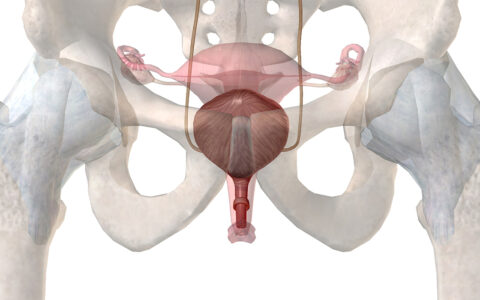While women’s health during pregnancy is carefully monitored, postpartum care is often inconsistent and fragmented across providers. For patients who develop hypertensive disorders, this poses risks.
“Postpartum hypertension occurs in as many as 20 percent of women within six weeks of delivery,” says Soha S. Patel, M.D., an assistant professor of obstetrics and gynecology in the Division of Maternal Fetal Medicine at Vanderbilt University Medical Center.
Hypertensive disorders triggered during pregnancy or in the postpartum period not only pose an immediate health risk for the patient but signal a higher risk of cardiovascular disease later in life. To identify and address these complications early, Vanderbilt recently launched a new clinic dedicated to postpartum hypertension called the Vanderbilt Fourth Trimester Hypertension Clinic, or V4 Hypertension Clinic.
“We used to see patients for initial postpartum assessment at six weeks postpartum and now we are seeing them earlier at three weeks.”
Led by Patel, the clinic builds on a growing list of specialized services offered at Vanderbilt to support women’s health in the postpartum period, including the Perineal Clinic for patients who have disorders of the perineum related to childbirth.
“The postpartum period is equally as important as the actual pregnancy period,” Patel said. “It can very much set the stage for assessing long-term health risks and overall well-being of the patient.”
Ensuring Earlier Follow-up
A high frequency of readmissions for postpartum preeclampsia was a key driver to launch the new clinic, Patel explained.
“Substantial morbidity occurs in that early postpartum period,” she said. “Blood pressure peaks around three to six days postpartum and can be significantly higher in immediate postpartum periods.”
Therefore, one important aspect of the new clinic is that patients with hypertensive disorders are seen for blood pressure evaluation no later than seven to 10 days postpartum, in accordance with recommendations from the American College of Gynecology (ACOG). Patients with severe hypertension are seen within 72 hours.
“We want to optimize the health of women during this period, assess their needs early on, and ensure they get connected to the appropriate care.”
“Previously, many of these women would be diagnosed with preeclampsia or uncontrolled chronic hypertension, started on an antihypertensive medication, and then told to follow up several weeks later,” Patel explained. “But they still need to be seen at the one-week mark to ensure that they are receiving the appropriate follow-up and medical care and that their condition is trending in the right direction. This is the premise of the V4 Hypertension Clinic. We also connect the patients to a primary care physician to continue the long-term care.”
Postpartum visits for all patients have also been moved up based on ACOG guidelines.
“We used to see patients for initial postpartum assessment at six weeks postpartum and now we are seeing them earlier, at three weeks,” Patel said.
While patients still see primary care providers for a comprehensive visit later, typically four- to 12-weeks after birth, these early postpartum check-ins create opportunities to get ahead of other common postpartum concerns, like mental health.
“If we screen a patient at the clinic and find that they may need to see a provider even sooner, we can make that happen,” Patel said.
More Convenient Postpartum Care
Knowing that as many as 40 percent of women do not attend postpartum follow-up appointments, the clinic aims to introduce telemedicine and remote blood pressure monitoring to make postpartum check-ins more convenient.
“Many of our patients live two to three hours away,” Patel said. “Obviously, it can be really difficult for them to come for a postpartum blood pressure visit.”
Patel also highlights that postpartum coverage from Tennessee’s Medicaid program, TennCare, was recently extended from 60 days to one year, which she says has been a boon for patients at the clinic seeking to obtain continued care.
“Pregnancy and postpartum periods are a window to the future health of women,” Patel added. “We want to optimize the health of women during this period, assess their needs early on, and ensure they get connected to the appropriate care.”





